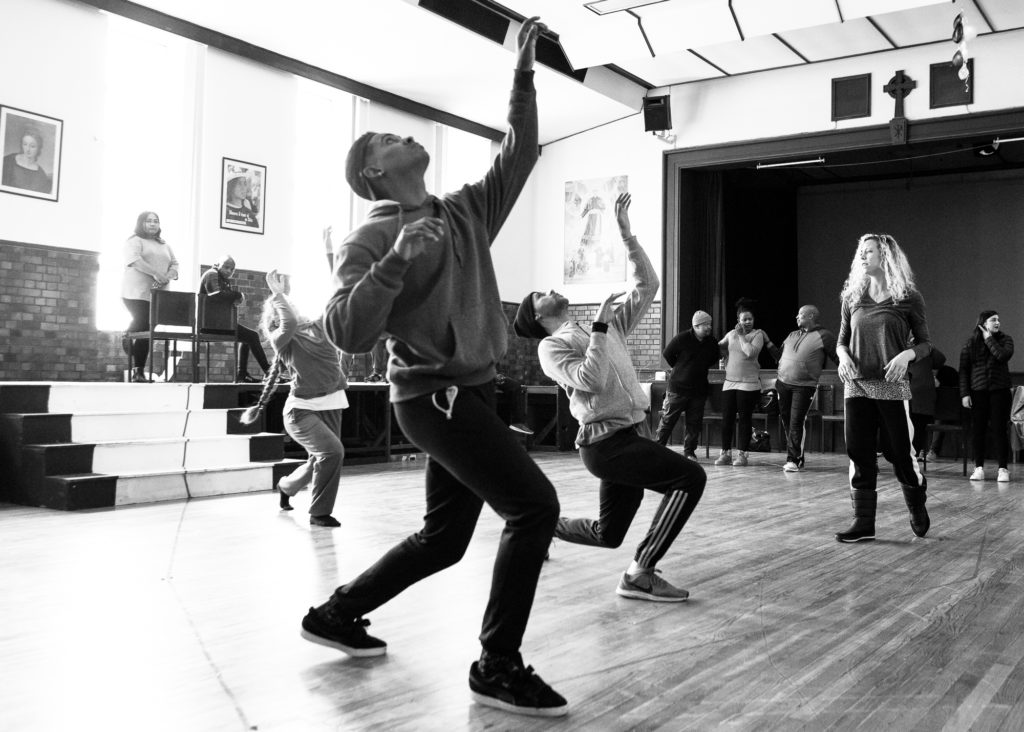Few myths have resonated with composers through the ages as powerfully as that of Orpheus and Eurydice, and according to Cape Town Opera’s Matthew Wild, who directs the company’s upcoming production of Gluck’s Orphée et Eurydice, this is due to its amalgam of timeless themes, namely the metaphysical power of music, and the loss of a loved one. Attendant on the latter is the strenuous effort to bring the departed back to life.
In staging this masterpiece for the first time for Cape Town Opera (“high time too,” comments Matthew Wild), the director regards it as a dramatization of the classic five stages of grieving, a concept that has been integrated into the narrative in a variety of ways by different composers.

Gluck and his librettist Calzabigi initially stripped away all non-essential incidents and secondary personae in an attempt to reform the florid presentation then in vogue, leaving the story to speak for itself in minimalist fashion. Twelve years after its 1762 première in Vienna, Gluck and another librettist, Moline, reworked and adapted it to French taste for a Paris première, with changes in vocal casting and a considerable space created for danced accompaniment. The slender narrative lent itself easily to this new thrust, and it’s the French version that Wild is producing.
“There’s great scope for choreography, and to that end we have Louisa Talbot on board; she’s adopted an eclectic approach with a mix of contemporary dance and hip-hop, but it’s held together by a classical rigour underpinning all the moves. A major challenge is to incorporate the chorus into this production (most directors either relegate the chorus to the pit or have the singers off-stage, but we are not doing that). Our chorus is wonderful; movement comes naturally to them, they are very quick to learn and open to new choreography. But it takes a lot of time to prepare them for a work that is only about 90 minutes long,” says Wild.
French version
Wild is fascinated by Gluck’s music, as modified by Berlioz for the French version: “We have a return to the Grecian concept of a chorus with a few leads, and the minimalism to which Gluck aspired is also apparent in the music; harmonies are used sparingly, as is the occasional dissonance for effect. That makes it strangely contemporary for us in this century (one is reminded of Philip Glass or Arvo Part).”
It was thanks to Berlioz that the role of Orphée became a trouser-part, created for the alto Pauline Viardot after a series of metamorphoses from the original casting for male castrato; today the opera features either a male counter-tenor or a low-voiced woman in the heroic lead.

Wild enthuses over the choice of English mezzo Fleur Barron as Orphée. “She fits the part amazingly, and audiences are in for a treat … she’s at the beginning of what promises to be a great career, with many prestigious commitments ahead of her, and we’re so lucky to have secured her, with her burnished chest register, for this production.”
Two women in love
A daring innovation on Wild’s part is turning the relationship between the leads into a lesbian love affair. “Making Orphée female opens the door to various interpretations by the audience, who could simply accept it as two women in love whose relationship is seen in the context of a meditation on premature loss; the overture accompanies their engagement party, which suddenly becomes a surreal space in which Orphée has to deal with the violent death of Eurydice. I’ve re-gendered the surtitles as the French libretto reflects male/female references. As for the element of grieving, it resonates particularly with me as I’ve lost so many friends and colleagues, gone before their time…”
The starting point of this Orphée et Eurydice is a loving relationship between two women, and spectators are left to make of it what they will. As usual, Matthew Wild can be relied upon to make demands on the imagination of his audience, which is in itself a compliment.
Pictures: Supplied

